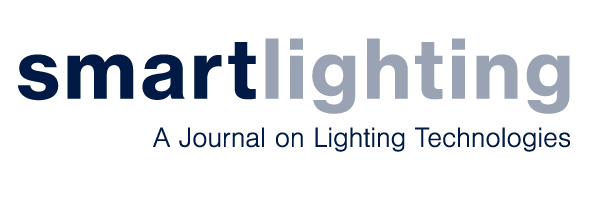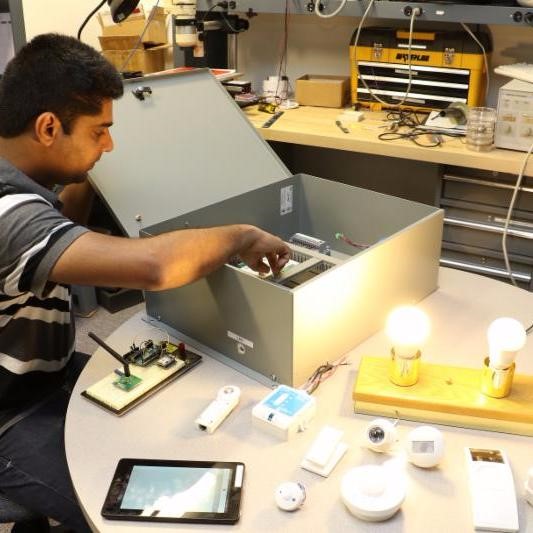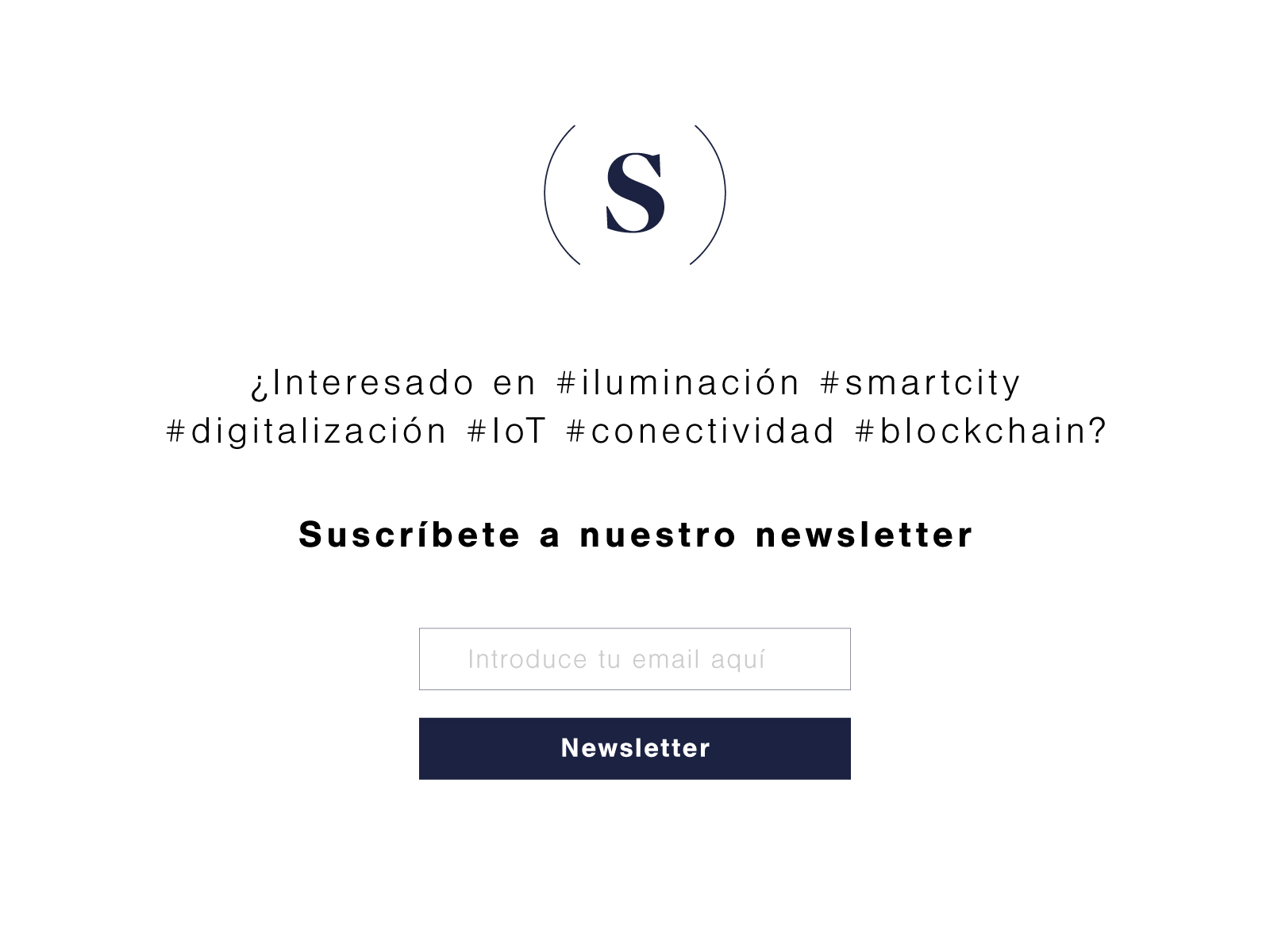The Lighting Research Center (LRC) at Rensselaer Polytechnic Institute is offering its popular, hands-on LED Lighting Institute—a 3-day seminar for industry professionals covering the latest advances in solid-state lighting (SSL), Internet of Things (IoT) and manufacturing industries.
The next LED Lighting Institute will be held on April 25-27, 2017. Reserve your seat soon!
Discover the benefits of incorporating advances from these quickly evolving industries into architectural lighting. Learn to optimize lighting systems by understanding the unique characteristics of SSL technologies and the needs of different applications. Compare SSL system components and learn about operating characteristics, rated life, lumen output, distribution, and other important specification factors.The program culminates with participants designing, building, and evaluating their own lighting fixtures, now including custom 3D printed components. The LED Lighting Institute is held at the LRC in Troy, New York, the largest and most experienced independent university-based lighting research laboratory in the world.
«Hands on sessions were very helpful. They helped me to retain the information
that I learned.»
At the LED Lighting Institute you will:
- Learn about the latest advances in LED and OLED technologies
- Learn about strengths and weaknesses of LED and OLED products
- Learn to select and specify LED and OLED lighting system components
- Experiment with LED and OLED lighting technology by building sample lighting fixtures
- Explore the possibilities of 3D printing technologies for luminaire integration using custom and modular parts
- Learn how to match application requirements with available technologies
- Learn about the latest LED and OLED research and testing
- Learn the pros, cons, capabilities, and limitations of connected lighting systems
- Receive an LRC Continuing Education Certificate in LED Lighting
Course fee
If you register by April 10, 2017, the course fee is $1,400. The fee for registration after April 10 is $1,500.
To reserve your place at our three-day LED Lighting Institute, fill out the registration form and include a deposit of $700 (balance due by event date). The course fee includes continental breakfasts and buffet lunches as well as all course materials and manuals. The LRC will also supply all lighting equipment.
Continuing education credits
Participants will earn 22.25 American Institute of Architects (AIA) Health, Safety, Welfare Learning Units (LUs/HSW) for attending the LED Lighting Institute. Participants also earn Continuing Education Units (CEUs) and will receive a Continuing Education Certificate in LED Lighting from the LRC. The LED Lighting Institute is eligible for LEED and NCQLP maintenance credits.
We have negotiated a special rate for hotel accommodations. For information on registration, travel, or CEUs, call Dan Frering at 518-687-7149, or email frerid@rpi.edu
About the instructors
Andrew Bierman, MS, LC — Professor Bierman is a senior research scientist at the LRC and an expert in photometry and radiometry. He is currently conducting research on the non-visual effects of light on health and circadian regulation. Other areas of research include mesopic vision (vision at low light levels), color vision, lighting controls, measurement of lighting efficiency, photosensor technology, and fluorescent lighting systems. Professor Bierman is one of our country’s leading experts in photometric measurement and is the head of the LRC’s photometric laboratories.
Jean Paul Freyssinier, MS, LC — Professor Freyssinier is a senior research scientist and adjunct assistant professor at the LRC. His research includes solid-state lighting, LED performance, technology transfer, energy-efficient lighting design, photometry, the spectral effects of lighting, and education. Since 2000, he has been involved in lighting technology research, development, and evaluation at the LRC. His previous experience includes working as principal of design at a full-service architectural lighting and automation design firm and as project manager at an energy management firm, both in Mexico. He has taught in the LRC’s graduate education program for the past 10 years and lectures frequently at conferences and seminars. He is the author of more than 35 scientific and technical articles related to energy efficiency, photometry, improved LED performance, and field applications, and co-author of two patents on LED remote phosphor technology.
N. Narendran, PhD — Dr. Narendran is a professor and director of research at the LRC. He is well known throughout the lighting industry for his pioneering research and educational activities in the field of solid-state lighting. Dr. Narendran leads a team of researchers and educators in the area of solid-state lighting at the LRC, and conducts research and educational programs to accelerate the development and market transformation of this promising technology. Dr. Narendran teaches the Physics of Light course within the LRC’s graduate education program, which includes photometry and optics. In addition, he has developed and taught courses in optics, LEDs, and fiber optic lighting. Dr. Narendran has authored or co-authored more than 100 articles in archival journals and proceedings and holds several patents. He is a Fellow of the Illuminating Engineering Society of North America.
Indika Perera, PhD — Dr. Perera is a research scientist working within the LRC’s Solid-State Lighting Program. He is a graduate of the LRC’s doctoral program with a degree in architectural sciences with a concentration in lighting. Dr. Perera’s expertise is in heat generation, transfer, and thermal management within LED lighting systems. His studies led to the publication of a mathematical model for predicting the temperature distribution in an LED phosphor layer, providing insight that is difficult to observe in experimental studies. His publication was a top download from the SPIE Digital Library under the category of light sources and illumination. His research interests include thermal management, material characterization, thermal measurements of solid-state lighting applications, and additive manufacturing including 3D printing and flexible printing.
Mark S. Rea, PhD — Dr. Rea is the director of the LRC and an expert in human vision, lighting engineering, human factors, photobiology, psychology, and light and health. He is the author of more than one-hundred scientific and technical articles related to vision, lighting engineering, and human factors and was the editor-in-chief of the 8th and 9th editions of the IESNA Lighting Handbook. His current research projects include the development of new metrics to improve the acceptance of energy-efficient lighting technologies, the study of the effects of light on circadian disruption, and research on reducing the market barriers to widespread use of energy-efficient lighting. Dr. Rea has conducted groundbreaking research in the areas of human visual performance, visual efficacy at nighttime light levels, and light and human health. His exceptional research expertise and experience along with his outstanding leadership and management capabilities are a great asset to this course.
Yiting Zhu, PhD — Dr. Zhu is a research scientist at the LRC. She manages the LRC’s technology testing and evaluation program. Her current solid-state lighting research includes optical design, phosphor characterization, LED package and system reliability, photometry and OLEDs. She has several publications in the field of phosphor-converted LED packages and received the 2007 best paper award at the First International Conference on White LEDs and Solid State Lighting. During her doctoral study, she was the recipient of the Link Foundation Energy Fellowship (2007-2009).


